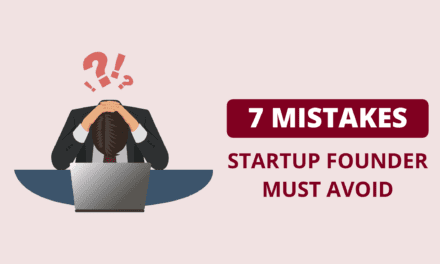Starting a startup is a mountainous job by itself and doing it right in the initial stage is of utmost importance. If you are beginning with a startup, you must have already researched the things you ‘must’ accomplish to make it the perfect beginning. However, the knowledge of ‘what not to do’ is also essential. There are many things that your startup does not need while gearing up, but you might be inclined to do them to create an alluring image before the public.
Sometimes the urge to do things just because everyone else is doing it puts a startup in a difficult position. Not every startup has the same start or backing, and following a sheep route, i.e., having no opinion or ideas of your own is never a good option.
Things A Startup Does Not Need While Starting Up
The list of dos and don’ts can be overwhelming. However, it acts as a cushion in making a venture a success. Most don’ts act as a precautions step to avoid complicating an already tiring process. A startup requires a lot of dedicated hours and patience to earn it a success. Keeping your to-do list compact is perfect.
A Fancy Office:
Funds are limited in a startup, and thus it is vital to keep track of every penny. A startup does not need a big, fancy office in a prime location in the initial stage. While it may sound intriguing to have a designated space to begin your new venture, office space brings with it additional expenses that are difficult to bear. If the requirement of the office arises, the usable option is to go for co-working space. The best option is remote working. Having an office space is a show thing in this digital world, rather than a necessity.
A Big Team:
Your startup does not need more people than required. Having a big team might seem like a good thing as it indicates a growing company. A startup only requires hard-working teammates. If a small, compact team can accomplish a job comfortably, that’s the best way to walk. Hiring a big team adds extra pressure on the funds of a startup and becomes an unnecessary bargain. So only employ if the individual adds something specific to the advancement of the startup.
Hierarchy:
A startup does not need a hierarchical set up with a head planner and a bunch of minion yes-men. It requires an efficient team that can put forward their plans that can help speed up the decision-making process rather than slowing it down. Not having a hierarchy helps the organization stay active and involved in the entire operation. Thus, eliminating the toxic and artificial culture of non-thinkers and yes-men. It also displays the trust that the management has in the decision-making skills of the employees, motivating them to put their best foot forward in the upliftment of the company.
Perfection:
One might want everything to be done perfectly to the tee, but initially, a startup does not need perfection. Perfection cannot be achieved in a day; it takes years of practice to change the earlier system and make it perfect. It is an endless journey, and a startup needs to be smart about its time. Over time, achieving perfection can become an excuse for delaying things. So, ditch the urge to be perfect and focus on functionality.
Complex System:
A startup does not need more complexity than it can handle. It should not take on the intricacy of a conglomerate. The idea is to work fast and make the best of simple systems. If high-tech systems used and available by more prominent firms make the process lengthier and come with a hefty price tag, it is always better to go for a simple plan.
Funding:
This point might seem confusing, but a startup does not need funding while starting up. When it is someone else’s money, it is easier to spend but using your own money makes you keep track of every penny spent. It keeps the financial system efficient. Also, funding comes with an extra burden, either in the form of ownership or interest. However, both end up putting an additional burden on a blooming, already burdened, working startup. Focus on long-term goals instead and set the stage before going for funding.
Serving Everyone:
A startup does not need to strive to please everyone. It is essential to understand that not everyone will love your product or service; many will have criticisms that do not amount to much. The idea is to maintain a target customer and focus on making them happy. If your product is for teenagers, you cannot expect to make adults happy with it. You might have adult buyers, but the section might be negligible. The focus must thus remain on the central target customers and keeping them loyal consumers happy.
To Conclude:
As it is said – ‘Start with what you have and gradually build what you want.’ Additionally, if it suits your interest, check out the book Rework by David Heinemeier Hansson and Jason Fried that helped me compile this list. As a startup entrepreneur, I can attest that this book is a must-read for all aspiring founders.
Stay connected with me on my blog and Instagram/Twitter. Connect with me here
































